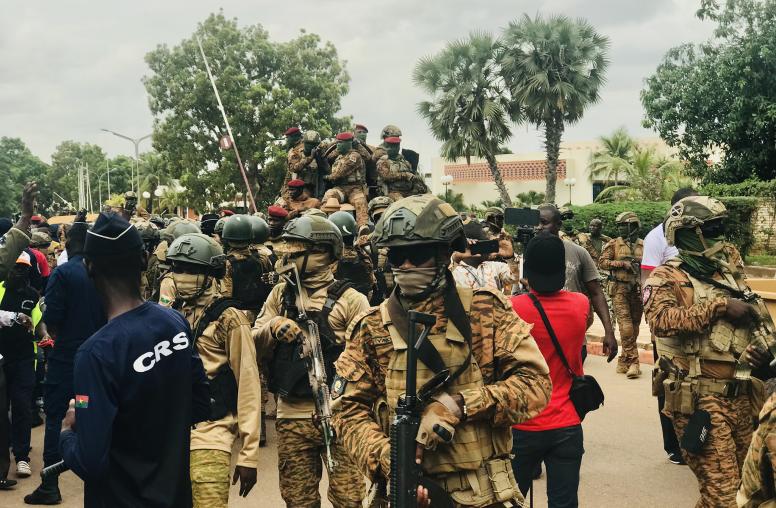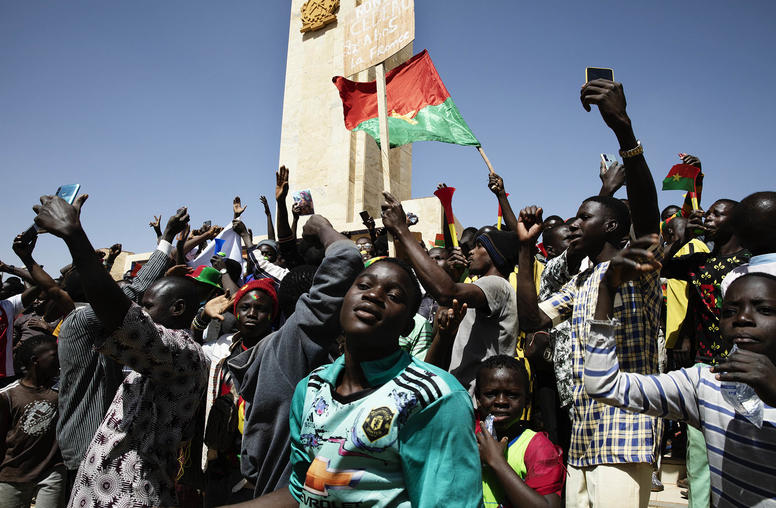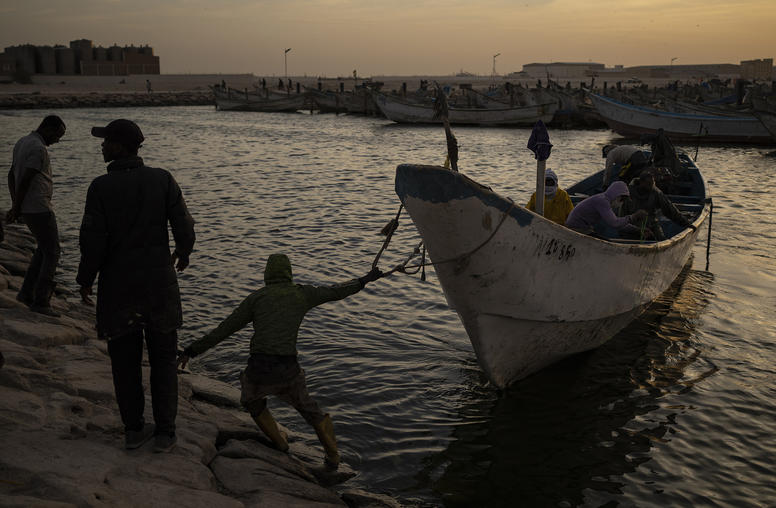Democratization in Mali: Putting History to Work
Peaceworks No. 58
Since the 1991 uprising, which saw the ouster of the country's long-standing military dictator and ushered in a democratically elected government, Mali has achieved a record of democratization that is among the best in Africa.

Summary
Since the 1991 uprising, which saw the ouster of the country's long-standing military dictator and ushered in a democratically elected government, Mali has achieved a record of democratization that is among the best in Africa. This process has been driven by multiple factors. External observers often point to broader Africa-wide change and a remarkable constellation of "founding fathers" who demonstrated vision and self-sacrifice following the change of government. But if you ask Malians why their country has successfully democratized, most of them will respond by stressing Mali's heritage of tolerance and decentralized government, dating back more than a millennium to the Ghana Empire and its two successor states. For Malians, democratization combined with decentralization is a homecoming rather than a venture into uncharted waters. But they recognize that the country's democratization process continues to be a difficult one, inevitably laced with controversy. Although satisfaction levels remain generally high, there is a near-universal desire for more rapid progress toward improved quality of life. This unease suggests the possibility that despite their legendary patience, Malians may eventually lose hope and faith in democracy unless economic growth accelerates.
The often critical views of educated, urban Malians about the current state of their democracy contrasts with the more positive attitudes that seem to prevail at the local level. The urban-educated group is particularly concerned about growing corruption and the slow pace of improvement in the education and judicial systems. City dwellers are understandably impatient with the country's newly forming political parties, which are weak and ineffective, but they are generally aware that strong political parties are a necessary component of a strong democracy.
While radical Islam has inhibited the creation of democratic institutions in other parts of the Muslim world, Malians do not widely perceive such radicalism as a threat to their democracy. Indeed, radical Islam seems to be growing slowly--if at all--in Mali. Further, Malians see the long-standing problem of unrest and near anarchy in the desert north not as a democratization problem but rather as a security problem--that is, as a threat to national unity. Most of the country's citizens would agree that strife in Ivory Coast is an even greater threat to the viability of their new democracy than the northern unrest.
Mali's rural communes are critical to the success of its new democracy, but these new local governments are highly varied. Some are thriving, while others are limping; some have capable leaders, while in others shady practices prevail. But almost everywhere commune members are enjoying the new experience of participatory democracy, and a kind of political springtime is in full flower. Commune-level concerns are focused on local-level resource needs rather than policy failings. There are nonetheless serious structural problems, such as looming land issues, that need to be addressed at the national level. Problems aside, virtually all Malians relish the political freedoms that now exist, best exemplified by the remarkable spread of local radio stations. They would not surrender these freedoms easily, and they are well aware that any return to authoritarian rule would put their newfound liberties at risk.
This paper concludes with several recommendations for the Malian government and its foreign partners, including the United States:
- If, as seems clear, Malian democratization is being driven in large part by culture and history, more should be done to encourage the preservation and transmission of traditional values and institutions, perhaps through the education system, more use of cultural preservation grants, and local radio.
- Mali's rich corpus of traditional law, perhaps the most important operational aspect of its traditional culture, is currently the neglected stepchild of decentralization. It should be recognized as a great, if far from perfect, asset and not prejudged to be a liability. The government should sponsor the compilation of a nonbinding guide to customary law that would enable administrators, civil-society agents, and magistrates to understand its principles.
- The High Council of Local Government (HCC) should be encouraged to start playing its intended role as a policymaking body for the decentralization system. For example, it should examine the growing and interrelated problems of resource shortfalls and land policy.
- Corruption is a pervasive problem and will be so long as middle-class aspirations remain completely out of synch with salaries. Because it undermines faith in the new democracy and has led to widespread cynicism, the Malian government should take a tougher stand on high-profile cases of corruption. Foreign missions could help by announcing a policy of zero tolerance for corruption in their own operations.
- Mali's nongovernmental organizations (NGOs) have become a fourth branch of government at the local (commune) level. Their role is so important that the time has come for more energetic self-regulation, if only to ensure that their services are equitably distributed.
- Malians have become expert at accommodating the ever-changing demands of numerous foreign aid donors, but the foreign assistance process distorts the economic policy framework. Mali will not have a healthy democracy until Malians are in charge of both their economic policy and their political system, and the donors should be prodding them in that direction--for example, by training them to do their own economic planning.
- Since 9/11, antiterrorism activities in the Saharan north have become a major element in U.S. policy toward Mali, eclipsing its traditional focus on humanitarian and developmental objectives. These activities are sometimes unduly influenced by shallow, worst-case analysis of Islamist potential. As things stand there is danger of conflict between the United States' support for democratization and its desire for tough action against suspected terrorists, and a need for greater diplomatic dialogue with Malians on the complex, historically difficult issues in the north.
- An examination of five of Mali's nearest neighbors--Senegal, Ivory Coast, Burkina Faso, Niger, and Guinea--confirms that a combination of history, cultural attributes, and geographic coherence can lead to a sense of national self-esteem and may be the key ingredients of successful democratization, even in very low-income settings. But comparison also confirms that bad leadership and/or bad history can nullify these underlying advantages, at least in the short run.
Mali's democratic progress holds no silver bullet solutions for its neighbors, although it does suggest that many other democratizing countries could learn something from Mali's experience. Mali has proven that African villagers can find political expression at the national level, that poverty is not an inherent barrier to democratization, and that love of political liberty can flourish in the most seemingly unlikely circumstances. However, as Malians themselves warn, the long-term success of any such democratic experiment will ultimately depend on whether it can spur economic growth.
About the Author
Robert Pringle is a retired U.S. Foreign Service Officer and historian specializing in interethnic relations, economic development, and the role of culture. He served as U.S. Ambassador to Mali from 1987 to 1990. His other official postings included Indonesia, the Philippines, Burkina Faso, Papua New Guinea, and South Africa. He has written three books on Southeast Asian history and politics, of which the most recent is A Short History of Bali: Indonesia's Hindu Realm (2004).



